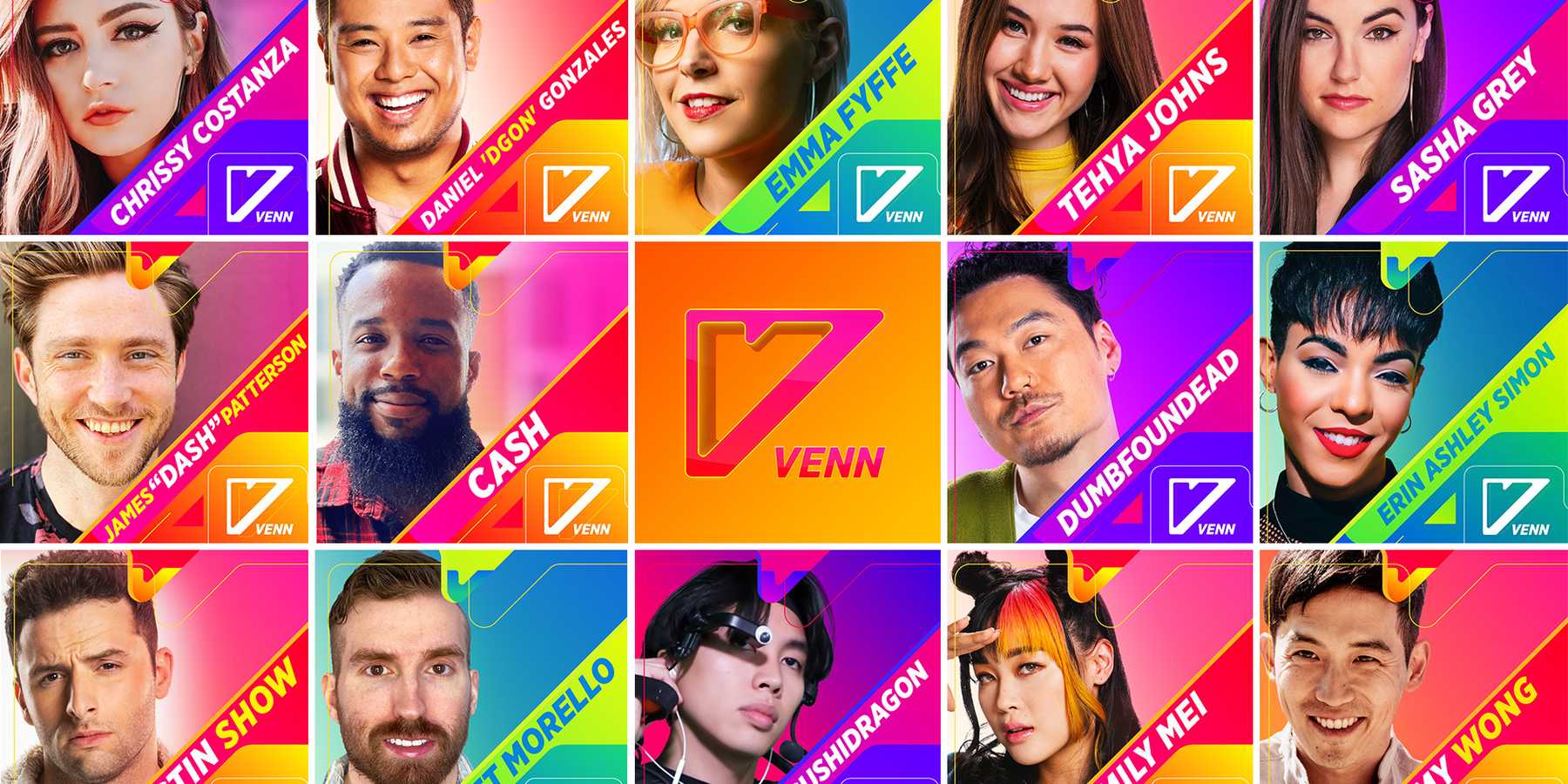

Get in the KNOW
on LA Startups & Tech
X
Photo by Julian Myles on Unsplash
SoCal Venture Pipeline, Pacific Western Bank Partner on Getting Early-Stage LA Startups VC Funding
Kristin Snyder
Kristin Snyder is dot.LA's 2022/23 Editorial Fellow. She previously interned with Tiger Oak Media and led the arts section for UCLA's Daily Bruin.
The SoCal Venture Pipeline program is partnering with Pacific Western Bank to continue connecting early-stage startups with venture capital.
Now formally known as the SoCal Venture Pipeline powered by Pacific Western Bank, the program has matched new startups with investors since launching in 2021. Pacific Western will serve as its lead sponsor, joining continuing supporters Wilson Sonsini and KPPB LLP. The Pipeline originally only considered startups looking for Series A funding, but expanded to include seed funding in February. Alliance managing director Eric Eide said adding Pacific Western to the program will further help its startups navigate both Series A and seed fundraising.
“That's really been where we've seen a lot of founder demand,” Eide said. “The amount of founders applying has tripled since [adding seed funding]. There's a lot of interest, particularly amongst the VC community or network, to see high-quality, vetted deal flow.”
Since launching a year ago, the Pipeline has accepted 31 of its 247 applicants. As a rolling program, the selection committee reviews applications on a monthly basis. Companies must be tech-focused and based in Southern California. For Series A funding, Eide said they look for teams that have already raised $500,000 angel or seed investment and are looking to raise at least $4 million. He said companies have to show demonstrable traction at the seed level, have a compelling market opportunity, and have raised at least $250,000.
Eide said they work closely with the chosen founders to connect them to the Pipeline’s network of 200 venture capitalists. Joining the program as a new sponsor, Eide said Pacific Western Bank will help advise founders and secure capital. The Cove Fund venture partner JC Ruffalo, who volunteers to help the program’s founders, told dot.LA in an email that the Pipeline exposes venture capital firms to companies that they might not otherwise have a chance to connect with.
“The SoCal Venture Pipeline is supporting and building a legacy of tech and medtech innovation and growth which will create a more robust and stronger innovation ecosystem here in Southern California,” he said.
Pacific Western Bank SVP Mark diTargiani said the bank was drawn to the Pipeline’s wide reach across Southern California. For early-stage startups, the bank provides free banking services, high-yield checking accounts, and a bit of unsecured credit card debt. diTargiani said they have already begun giving advice to companies in the program and have also introduced new investors to the Pipeline.
“What we saw was an opportunity to help to build a community of early-stage startups throughout the L.A. ecosystem,” diTargiani said.
Despite the unstable market, there is plenty of capital for early-stage startups, diTargiani said. Though the funding environment has changed in recent months, Eide said people are still making deals—and the Pipeline’s investor network can help founders make important connections to get those deals.
“It's still a good time to be raising relatively even if it's a little bit different than the heady days of last year,” Eide said.
From Your Site Articles
- SoCal Venture Pipeline Connects Startups with Series A Funds - dot ... ›
- Headspace Raises $93 Million, Plans Growth - dot.LA ›
- Zillow Co-Founder Spencer Rascoff Has Advice for #LATechWeek ... ›
Related Articles Around the Web
Kristin Snyder
Kristin Snyder is dot.LA's 2022/23 Editorial Fellow. She previously interned with Tiger Oak Media and led the arts section for UCLA's Daily Bruin.
https://twitter.com/ksnyder_db
Retina AI Secures Additional $8 Million for Ecommerce Analysis
04:58 PM | June 29, 2021
Photo by UX Indonesia on Unsplash
One of the difficult and costly things for ecommerce companies is finding and keeping customers online.
Emad Hasan, a former Facebook and Paypal marketing analyst, said he often saw online sellers wasting money chasing customers who would never return.
The co-founder of Santa Monica-based Retina, Hasan helped create an application that vendors can use to identify valuable customers, those more likely to spend or keep coming back.
On Tuesday, Retina announced it raised $8 million in Series A funding that it will use to develop the software and expand the company. The funding round was led by Alpha Intelligence Capital and Vertical Venture Partners.
"Using a compass is what they have been doing," he said. "And now we're now giving them a GPS that gives them a much more accurate understanding of where they are, where they could be going and how they're making those decisions."
Founded in 2017, Retina uses artificial intelligence and data from the company to predict which customers are likely to come back.
The AI tools are integrated into platforms like Shopify, Google and Facebook and customers can view Retina's predictions on Google and Facebook Ads platforms.
Client companies can use Retina's AI to lure in customers who are likely to return with things like discounts and special offers.
Hasan said Retina is targeting smaller, newer companies that often don't have the money or manpower to sift through customer data and search out repeat shoppers. It's also appealing to businesses that have at least 18 months of data and around 100,000 customers.
Retina's customers include companies like Dollar Shave Club, Nestlé and Madison Reed.
From Your Site Articles
- Retina Consumer Data Company Gets $2.5 million in Funding - dot.LA ›
- Shield AI Draws in $225M, AllGear Digital Collects $40M - dot.LA ›
- Google, Microsoft, and Meta Plan To Shift to AI-Enabled Ads - dot.LA ›
Related Articles Around the Web
Read moreShow less
Bernard Mendez
Bernard Mendez is an editorial intern at dot.LA. He attends UCLA, where he is pursuing a bachelor’s degree in applied mathematics. Mendez was previously an editor at the Daily Bruin, the student newspaper at UCLA.
https://twitter.com/bernardhmendez
bernard@dot.la
Respawn: VENN Gaming Network Drops Its MTV Ambitions and Goes for 'Raw Contact' with Creators
07:00 AM | February 04, 2021
VENN launched in August with the goal of becoming the "MTV of the Gaming Generation" but it turns out the gaming generation doesn't appear to want MTV. They want short-form content.
On Thursday, VENN announced a significant shakeup, shifting their content strategy from about 85% long-form shows to 85% short-form, which is cheaper to produce and offers near instant feedback, co-CEO Ariel Horn told dot.LA.
The company made the shift after securing $43 million in investment and a broad network of distribution partners. Those deals include one with telecoms company Nexstar — with its $5.3 billion market cap and nearly 200 TV stations — as well as a syndication deal with Microsoft's MSN platform and placement in the Roku Channel and on Samsung TV.
It was ready to go full throttle on their MTV-for-Gen-Z pitch, but after doing a round of focus groups and looking at its cost structure, it pivoted to focus on short-form platforms like YouTube and Twitch. The move, Horn said, reflects how gamers consume media.
As part of the pivot, L.A.-based VENN will be launching three channels on YouTube and collaborating more closely with creators that already have gamer followings.
"It's a humbling process, actually," said Horn. "You look at the editors that are making the most successful products on YouTube, and they're mostly younger folks that have grown up and lived in this environment. So for us, that's been a process, to look at those creators that are succeeding on those platforms and allowing them to do what they do and see the results."
For example, VENN will be developing a new interview show with Hector Rodriguez, whom Horn described as the "grandfather of 'Call of Duty'." Rodriguez, who started esports company Optic Gaming in 2006, has nearly 1 million subscribers and over 150 million views on his YouTube channel.
"I thought we could take long-form and chop it down into short-form platforms," said Horn, a four-time Emmy winner who previously developed esports strategies for Riot Games, Blizzard Entertainment and Justin.tv, which became Twitch. "But what I realized is that each platform needs its own bespoke attention to detail."
For VENN, that will mean focusing more on things like video titles, thumbnail photos and metadata as it shifts away from studio-quality fare toward less-polished, user-generated content (UGC).
Rather than shooting long-form content from its Playa Vista studio and cutting it down into short-form bits as initially planned, VENN will now prioritize creating short-form, some of which will be shot in the studio, and then cobbling it together for distribution across its various channels.
"We learned that we must focus our energy on creating engagement and growth on those short-form platforms where gamers are primarily consuming now," Horn said. "The audience is not necessarily looking for higher production value but more direct, raw contact with the creator."
Also motivating the new strategic direction are the cheaper cost of creating short-form video and the promise of more immediate user feedback.
Shooting live, long-form content can be expensive because of the manpower and overhead costs like studio space. The new strategy will allow VENN to make more content for less.
"With our long-form focus, we were able to produce three days' worth of content (per week)," Horn said. By removing some of the production polish, leveraging UGC and reducing the amount of staff needed per product, VENN will be able to produce five days' worth of content at a cheaper cost.
Thanks to the data that YouTube and Twitch provide, VENN will also be able to get more real-time feedback on what viewers are responding to than they can get through cable and connected TVs like Roku, Samsung TV and Vizio.
Horn doesn't think the top line will take a hit.
"I don't think that very much changes from an advertiser's perspective," he said.
VENN still has aspirations to become a "lifestyle" brand at the nexus of the increasingly overlapping worlds of gaming, sports, music and fashion. But to get there, it will be narrowing its focus for now.
"It's a reality of a startup that you have to make some bets where you know there are narrow bands of fandom and where you know how to market to them very specifically," said Horn. "We're willing to take as long as needed to build (the lifestyle brand). We're here for the long run."
From Your Site Articles
- VENN Gaming Network Raises $26M and New Distribution ›
- VENN Launches 24/7 Gaming Coverage - dot.LA ›
- Users Are Calling To Boycott Twitch After TwitchCon Disaster - dot.LA ›
Related Articles Around the Web
Read moreShow less
Sam Blake
Sam primarily covers entertainment and media for dot.LA. Previously he was Marjorie Deane Fellow at The Economist, where he wrote for the business and finance sections of the print edition. He has also worked at the XPRIZE Foundation, U.S. Government Accountability Office, KCRW, and MLB Advanced Media (now Disney Streaming Services). He holds an MBA from UCLA Anderson, an MPP from UCLA Luskin and a BA in History from University of Michigan. Email him at samblake@dot.LA and find him on Twitter @hisamblake
https://twitter.com/hisamblake
samblake@dot.la
RELATEDTRENDING
LA TECH JOBS


